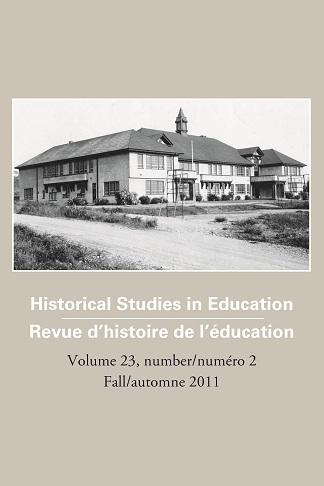Published
November 2, 2011
Keywords
- university students,
- religion,
- 1960s,
- change,
- Canada
Copyright Notice
Open Access and Copyright Policy
Historical Studies in Education/Revue d’histoire de l’éducation (HSE/RHÉ) provides immediate open access to its content according to the Budapest Open Access Initiative. Users are allowed to read, download, copy, distribute, print, search, or link to the full texts of our articles. All journal content is freely available without charge to the user or his/her institution. Authors are not charged article processing fees for publication. Immediate open access to content is provided on the principle that making research freely available to the public supports a greater global exchange of knowledge. Users may not modify HSE-RHÉ publications, nor use them for commercial purposes without asking prior permission from the publisher and the author.
Authors who publish with this journal agree to the following terms:
a. Authors retain copyright and grant HSE-RHÉ the right of first publication.
b. Authors who wish to enter into subsequent, separate, commercial or non-commercial, contractual arrangements for the non-exclusive distribution of the journal’s published version of their work (e.g., post it to an institutional repository or publish it in a book), must request permission from the journal. Subsequent publications must include an acknowledgement of its initial publication in HSE-RHÉ.
c. Authors who wish to revise, transform, or build upon their HSE-RHÉ publications must request permission from the journal to publish the revised material. The resulting publication must include an acknowledgement of its initial form and publication in HSE-RHÉ.
Abstract
While increasing information in becoming available on Canadian student activists of the 1960s, little is known of the religious beliefs and practices of average university students. Relying on never before analyzed information on students attending Glendon College (the original campus of York University) from 1963 to 1967, it is shown that religion was not an important component of public or private discourse. Moreover, while a majority adhered to the religions of their parents, over the course of their studies, a considerable number of students rejected religion or had become atheists or agnostics, particularly if they were enrolled in the humanities. Such students were more likely than others to identify with the political left. Overall, students experienced more change in religion than in politics. The impetus to religious change included formal courses, a general increase in knowledge, and interactions with other students and faculty. Despite change, few students reported religious problems.
